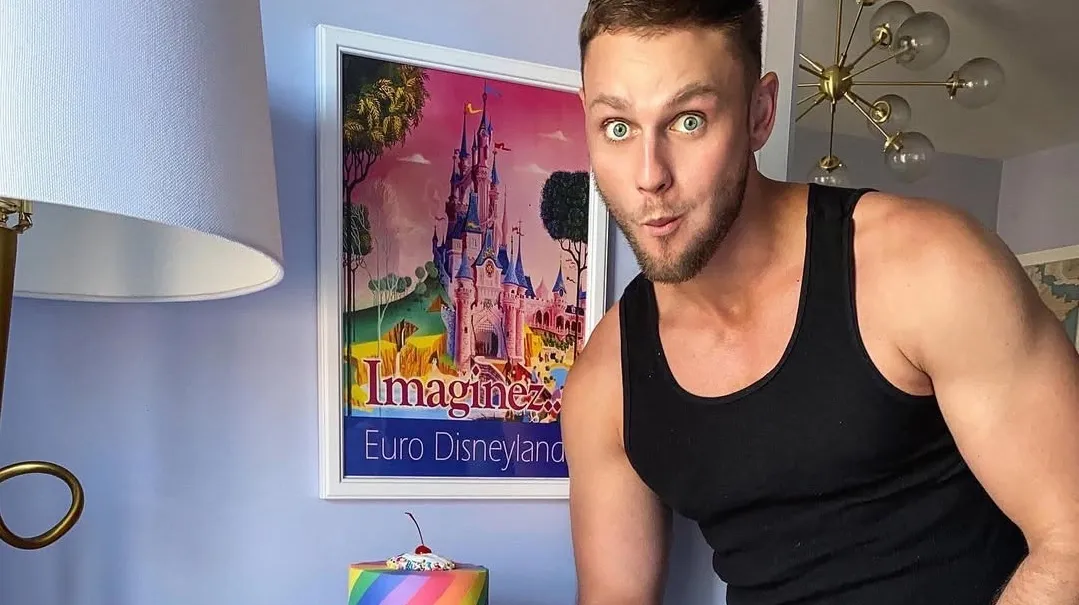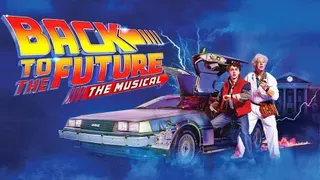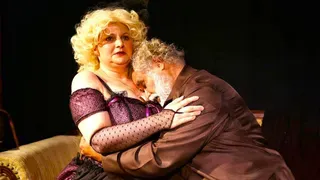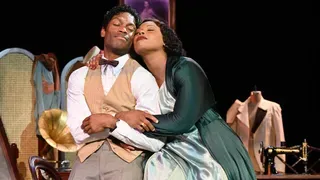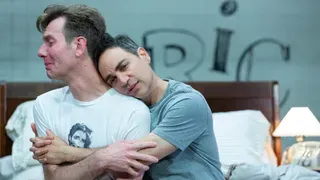July 31, 2020
Review: Season Two of 'The Umbrella Academy' Finds the Fun in (Another) Apocalypse
Kilian Melloy READ TIME: 4 MIN.
With the second season of the Netflix series "The Umbrella Academy" you might get a sense of history repeating: Six diverse siblings (seven, if you count the late Ben, whose ghost tags along for the ride) find themselves facing the end of the world... and they just might be the reason it happens.
That, in broad strokes, was also the plot for Season One, when the brothers and sisters Hargreeves reluctantly banded together to prevent a literally-Earth-shattering disaster... a task at which they failed monumentally.
In order to save his family at the end of Season One, space-and-time-jumping Five (Aidan Gallagher) whisked the siblings into a time vortex. Since Five's temporal abilities are shaky... to say the least... everyone ends up scattered across several years at the beginning of the 1960s. But they all dropped into the same alleyway in Dallas, Texas.
When the last of them arrives, it's November, 1963 – a month that has been seared into our collective cultural consciousness, since that's when a nuclear war with Russia wipes out everyone on the planet.
What, you were expecting something about the assassination of a prominent American official?
Well, that plays a part too, though just how is unclear at first. As Apocalyse Then approaches, the season circles around JFK and Dealey Plaza, with our cast of characters nibbling at the edges of history. But the focus remains on the family, and they're as frenetically dysfunctional as ever. The knife-wielding Diego (David Castañeda) is convinced that he's in1963 to play hero, but he's also got a distraction in the form of the group's adoptive father, the strange and brilliant Sir Reginald Hargreeves (Colm Feore), whose younger self Diego finds is also in Dallas at the time.
Big brother Luther (Tom Hopper)... who really is the big brother, since he's been bodily amped with the physical characteristics of a gorilla, lending him super-strength – has become a bouncer and back-alley fighter, content to nurse his broken heart with a good bruising every night. Allison – the reason Luther is so upset; he thinks she's been killed – has, unknown to him, settled into a new life across town, married to a civil rights activist named Raymond (Yusuf Gatewood) whose efforts might lead to a brighter future... if, that is, there's still going to be a future.
Then there's the lazy, self-centered, and sexually fluid Klaus (Robert Sheehan), whose specialty is conjuring up the spirits of the dead. His louche charm, sexual charisma, and willingness to exploit the gullible lead Klaus to a fresh career as a cult leader (what else?). He's also the reason the ghost of Ben (Justin H. Min) is in the picture, and their odd couple antics give the series endless comic material.
And, of course, there's Vanya (Ellen Page), the reason why the apocalypse in Season One happened. Will she trigger a whole new armageddon, changing the past and wiping out sixty years of history along with everyone on the planet?
That question is one of the new season's central mysteries – though no more so than Vanya's past is a mystery to Vanya herself, considering that she no sooner drops into 1963 than she's knocked over by a car driven by unhappily married housewife Sissy (Marin Ireland), resulting in amnesia. Shades of "Back to the Future," yes, but the pop culture references hardly end there. Indeed, within the first twelve minutes of the first episode there's still another "Back to the Future" reference, as well as a shout-out to "The X Files," whose core mythology has been fed into a food processor for this show's fantastical, conspiracy-theory tinged storylines. Those knowing winks, together with the series' always-apt (and kickin'!) musical choices help keep things light and frothy.
In order to stop doomsday from happening all over again in 1963... before it can even happen the first time, in 2019... the Hargreeves family are going to have to work out their sibling rivalries, daddy issues, and perpetually ill-fated romantic entanglements, which, this time around, involve an asylum relationship, a gay epic love story that might (due to the vagaries of time travel) be erased before it can begin, and an illuminating lesbian connection.
Oh – and there's also a trio of time-traveling Swedish assassins who have been dispatched by the all-seeing, ever-mysterious group called "The Commission," whose job it is to protect the proper flow of the timeline... despite its own dysfunctional infighting.
That, too, was a Season One story point, but Season Two is far from a simple rehash. Instead of simply recycling the essential beats of what has come before (familial putdowns, criss-crossing loyalties, impossible situations, lethal pursuers at every turn), Season Two riffs in every direction on familiar elements and constantly throws up new surprises. There are also, baked into the season's 10 episodes, currently-resonant reflections on sexism (and the arrogant entitlements that drive it) and racism (the ugly ramifications of which are, disappointingly enough, playing out on the nightly news these days). The show feels eerily synchronistic with real life in 2020, but then again, how can you set a show in 1963 and not revisit the specter of America's deeply-ingrained racism in all its repugnance?
The show's action-adventure pace, comic tone, and charismatic cast are more than enough reason to tune in. But viewed as a funhouse mirror on our own insanely repeating cycles of hatred, violence, and self-destructive impulse, "The Umbrella Academy" becomes something more: It's a parable for the times.
"The Umbrella Academy" is streaming now at Netflix.
Kilian Melloy serves as EDGE Media Network's Associate Arts Editor and Staff Contributor. His professional memberships include the National Lesbian & Gay Journalists Association, the Boston Online Film Critics Association, The Gay and Lesbian Entertainment Critics Association, and the Boston Theater Critics Association's Elliot Norton Awards Committee.
